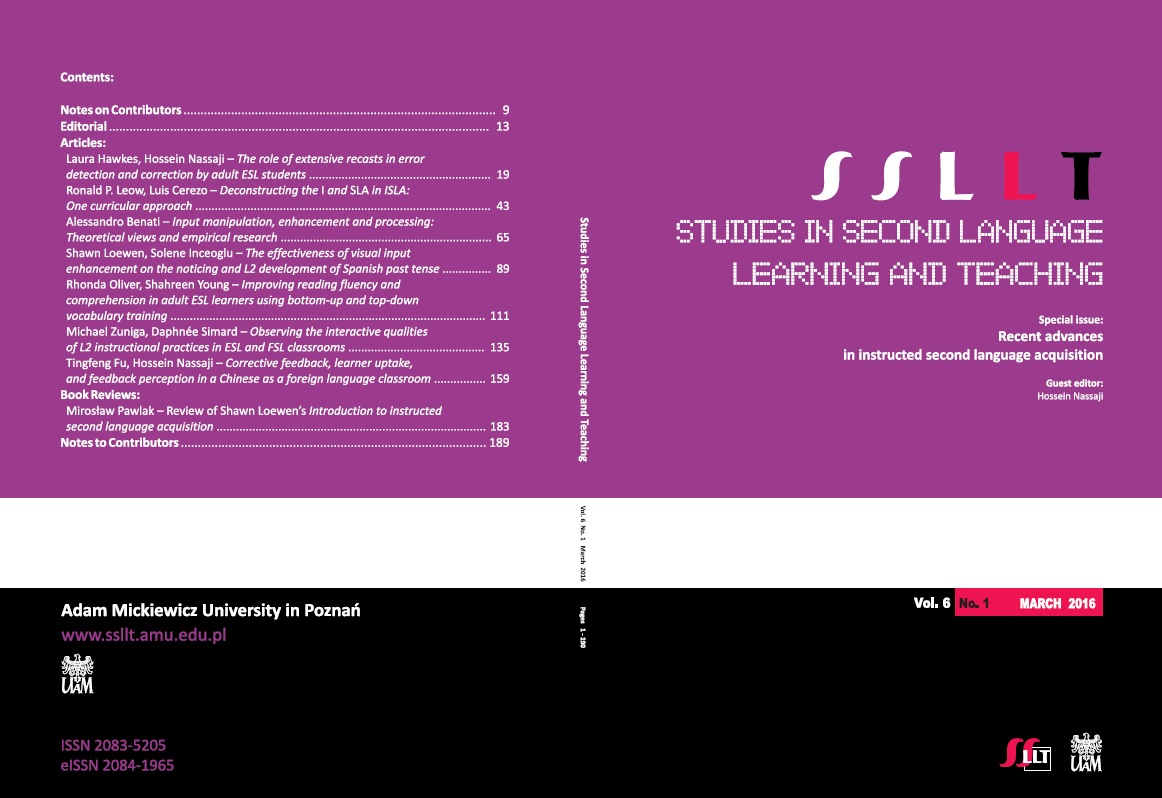Corrective feedback, learner uptake, and feedback perception in a Chinese as a foreign language classroom
Corrective feedback, learner uptake, and feedback perception in a Chinese as a foreign language classroom
Author(s): Hossein Nassaji, Tingfeng FuSubject(s): Language and Literature Studies
Published by: Wojskowe Biuro Historyczne im. gen. broni Kazimierza Sosnkowskiego
Keywords: corrective feedback; uptake; feedback perception; second language classroom
Summary/Abstract: The role of corrective feedback in second language classrooms has received considerable research attention in the past few decades. However, most of this research has been conducted in English-teaching settings, either ESL or EFL. This study examined teacher feedback, learner uptake as well as learner and teacher perception of feedback in an adult Chinese as a foreign language classroom. Ten hours of classroom interactions were videotaped, transcribed and coded for analysis. Lyster and Ranta’s (1997) coding system involving six types of feedback was initially used to identify feedback frequency and learner uptake. However, the teacher was found to use a number of additional feedback types. Altogether, 12 types of feedback were identified: recasts, delayed recasts, clarification requests, translation, meta linguistic feedback, elicitation,explicit correction, asking a direct question, repetition, directing question to other students, re-asks, and using L1-English. Differences were noted in the frequency of some of the feedback types as well as learner uptake compared to what had been reported in some previous ESL and EFL studies. With respect to the new feedback types, some led to noticeable uptake. As for the students’ and teacher’s perceptions, they did not match and both the teacher and the students were generally not accurate in perceiving the frequency of each feedback type. The findings are discussed in terms of the role of context in affecting the provision and effectiveness of feedback
Journal: Studies in Second Language Learning and Teaching
- Issue Year: VI/2016
- Issue No: 1
- Page Range: 159-181
- Page Count: 23
- Language: English

